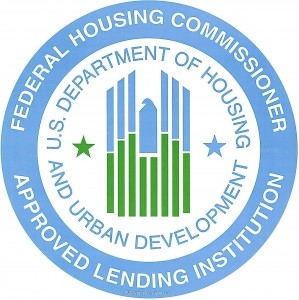Advertisement
FHA Preps for the Future

The Federal Housing Administration is at a critical crossroads, but with the best performing books of business in its 80-year history, FHA is prepared for the future. That’s according to current and former FHA commissioners, who spoke to thousands of Realtors at the 2013 Realtors Conference and Expo. “We are on the right track financially, and will continue to help American people reach their dreams of owning a home,” said Carol Galante, FHA commissioner and assistant secretary for housing. “We’ve implemented a series of policy initiatives in recent years to ensure that people who cannot get a mortgage in the private market can get help through FHA.”
As the leading advocate for homeownership, NAR strongly supports the FHA, which has insured more than 40 million mortgages since its inception in 1934, including financing for 730,000 homebuyers and refinancing for 450,000 homeowners in 2012 alone.
Other panelists included former FHA Commissioners Brian Montgomery and John Weicher, and Ginnie Mae President Theodore Tozer, whose agency is responsible for backing FHA-insured loans. The panel was moderated by Kent Colton, senior fellow at the Joint Center for Housing Studies of Harvard University.
The speakers provided a broad historical context for the current political debate over the FHA’s solvency after its recent $1.7 billion draw on the Treasury.
“FHA is required to have enough in its reserves to cover all of our projected losses over the life of business we’ve already done, plus another two percent cushion,” said Galante.
“The current situation is both technical and temporary,” said Montgomery, who served as FHA commissioner from 2005 to 2009. “FHA is a government mortgage insurance program that’s been around since the Great Depression; it’s here to help working families have access to credit, and god forbid in times of economic calamity, FHA is there for you. Like the old Timex commercial, it takes a licking and keeps on ticking.”
Weicher, who served as FHA commissioner from 2001 to 2005 explained the lifecycle of the FHA. “It’s been a tough time for FHA and I don’t think that can be helped, but FHA was not part of the problem. The years before the housing crash were the years when FHA was not doing much buying or contributing to the problem, but when the roof caved in, FHA contributed to the solution,” he said.
Galante said new FHA policies have made it more expensive for consumers to buy homes and cautioned that FHA should not put any more of the cost burden of old loans onto new buyers.
“We increased premiums because they were too low given the risks FHA was exposed to during the crisis,” she said. “Today, FHA has priced the risk appropriately, with some cushion.”
Going forward, Galante said it’s more important to do things to get lenders outside the current credit box, so that borrowers with a 660 credit score, though not pristine, are seen as good borrowers.
The panelists also addressed two disparate legislative proposals offered by leaders in the U.S. House and Senate to reform FHA, the bipartisan “FHA Solvency Act of 2013,” that was introduced by Senate Banking Committee Chair Tim Johnson, D-S.D., and Ranking Member Mike Crapo, R-Idaho, and the “PATH Act,” introduced this year by House Financial Services Chairman Jeb Hensarling, R-Texas.
“I think the Senate’s Johnson-Crapo bill is really focused on helping FHA have some additional authority,” said Galante. “It’s not perfect, but it’s focused on providing the tools that FHA needs in the short term.”NAR supports the Senate bill, which provides common sense reforms of the FHA mortgage-insurance program while ensuring its financial solvency and not disenfranchising American families. Regarding the PATH Act, which is strongly opposed by NAR since it would eliminate the government guarantee in the secondary-mortgage, Tozer said that it would be very difficult to have the 30-year fixed-rate mortgage without the government guarantee.
NAR believes that the PATH Act would jeopardize the ability of low- and middle-income American families to have access to affordable homeownership and rental housing, as well as the future of the real estate industry.
About the author




